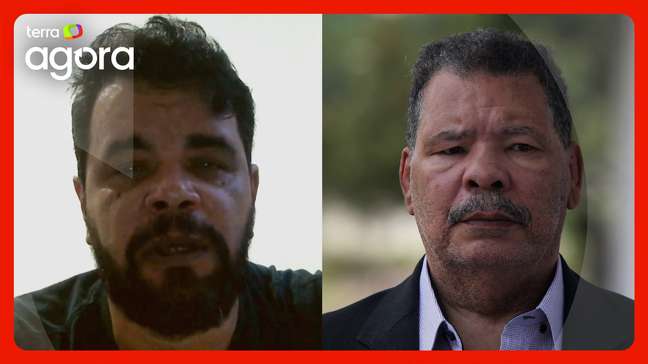Maguila died this Thursday, 24, at the age of 66; he was diagnosed with chronic traumatic encephalopathy (CTE)
-
BY PARTICIPATING

Maguila, Brazilian boxing legend, dies at age 66 in SP
-
BY PARTICIPATING

Part of the roof of a state school collapses, leaving a student injured in Sao Paulo
-
BY PARTICIPATING

How to avoid the scary zero mark in the Enem essay
-
BY PARTICIPATING

How the advance of the far right in Europe could fall to Enem
After years of intense battles that led to a multi-championship record, boxer José Adilson Rodrigues dos Santos, Maguilabegan to face, since 2013, one of his greatest fights, against an invisible opponent: chronic traumatic encephalopathy (CTE)known as “boxer’s dementia”a neurodegenerative condition caused by years of repeated blows to the head.
Receive the main news directly on WhatsApp! Subscribe to the Terra channel
The diagnosis led Maguila to sign, in 2018, a “declaration of will” in which he expressed his interest in donating his brain to the Faculty of Medicine of the University of São Paulo (FMUSP). The Brazilian boxing legend died this Thursday, the 24th, at the age of 66.
The institution has a group that studies the consequences of head impacts in high-intensity sports, such as football and boxing. The brains of the defender Bellini, world champion in 1958, and the boxer Éder Jofre, who died in 2022, were also studied.
According to FMUSP, the document, signed during life, must be notarized in two copies: one with the donor or his family and the other with the university. After the death, the family must file a police report notifying the death.

The family members then notify the Death Verification Service (SVO) – in the case of São Paulo, the service is within the Faculty of Medicine itself. The body is taken to the SVO, the declaration is presented and the Topography discipline that will receive the brain is notified.
CTE causes cognitive decline, behavioral changes, and memory problems. In 2010, Maguila was misdiagnosed with Alzheimer’s disease. Years later, he was hospitalized for two years after being reevaluated and definitively diagnosed with CTE.
Researchers still face great difficulties in diagnosing and monitoring the evolution of CTE. Scientific advances, however, already allow some evaluations, such as markers with the TAU protein, imaging tests and the removal of brain fluid, a fluid that acts as a “shock absorber” for brain structures.
If the protein is found in high quantities in certain regions of the brain, CTE may be confirmed. Experts expect that, soon, the markers will be able to be identified in blood tests, making it easier to identify, monitor and treat the condition.

Source: Terra
Ben Stock is a lifestyle journalist and author at Gossipify. He writes about topics such as health, wellness, travel, food and home decor. He provides practical advice and inspiration to improve well-being, keeps readers up to date with latest lifestyle news and trends, known for his engaging writing style, in-depth analysis and unique perspectives.





![More beautiful life in advance: What awaits you on Wednesday, July 16, 2025, in an episode of 377 [SPOILERS] More beautiful life in advance: What awaits you on Wednesday, July 16, 2025, in an episode of 377 [SPOILERS]](https://fr.web.img6.acsta.net/img/53/5a/535a58f181f2f8d5e35ce7cf5fbbd28e.jpg)



